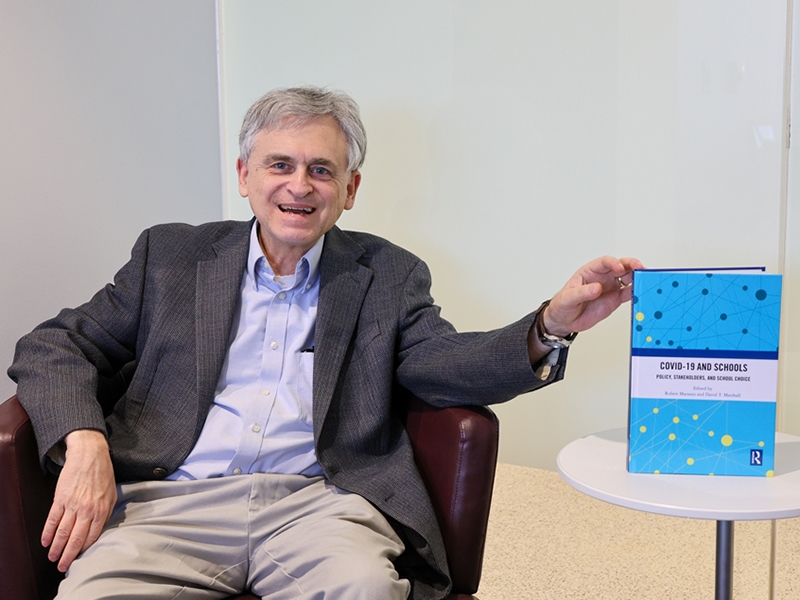
The COVID-19 pandemic proved to be one of the most geographically widespread crises in the history of schooling, with 195 countries, the United States and tens of thousands of public schools, public charter schools and private schools forced to respond in myriad ways.
College of Education and Health Professions professor Robert Maranto and Auburn University associate professor David Marshall edited COVID-19 and Schools: Policy, Stakeholders, and School Choice to assess what was learned from the pandemic from a schooling perspective.
Maranto, the 21st Century Chair in Leadership in the Department of Education Reform, has done fieldwork in over 200 schools. He's also served five years on his local school board and more than 10 years on a cyber charter board. Marshall has served as chair of the Alabama Public Charter School Commission and as a middle and high school social studies teacher in Philadelphia.
COVID-19 and Schools, published by Routledge, brings together peer-reviewed research from leading experts on how the pandemic affected teachers, students, parents, teaching practices, enrollments and institutional innovations. The new book will offer the first empirical findings exploring significant educational impacts likely to last for decades.
Maranto and Marshall establish several key findings throughout the book, including that:
- Compared to other developed countries, U.S. physical schools stayed closed longer.
- School closings, openings and modes of instruction varied widely across states and school sectors (public, private and public charter schools).
- In all sectors, teachers found teaching during the pandemic more challenging than ever because of constantly changing policies and unprecedented demands to simultaneously teach students in physical, hybrid and purely online modes of instruction.
"Fear does not lead to good decision-making, so we made a lot of mistakes during COVID-19," Maranto said. "The global movement of people and goods brings enormous benefits, but it also means that a pandemic like this is likely to happen again because germs also cross borders. Next time, we will be better prepared."
Topics
Contacts
Sean Rhomberg, assistant director of communications
College of Education and Health Professions
479-575-7529,